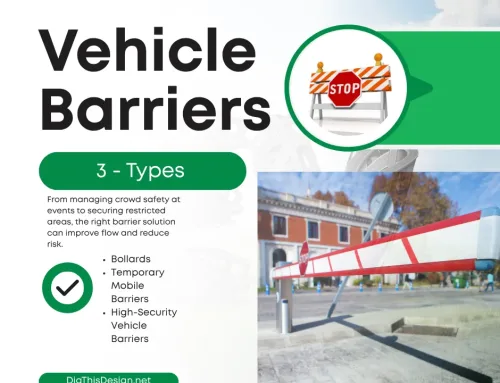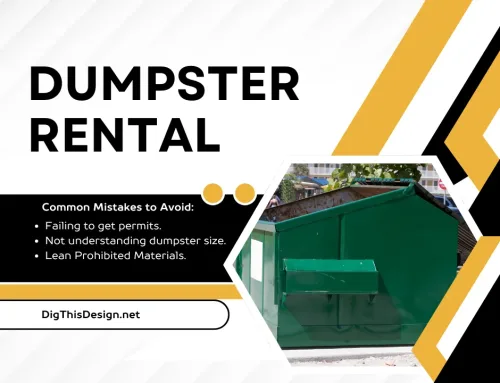A comprehensive understanding of lease agreements in commercial real estate is essential. For commercial real estate property owners, this knowledge can help them choose the best option for their investment strategy. For tenants, it’ll give them an idea of what works best for their budget. This article provides in-depth modified gross lease information for landlords and tenants.
Today, we look at how it works and the pros and cons of this type of lease agreement. We also briefly discuss the differences between a modified gross lease and a triple net lease in commercial real estate. We invite you to continue reading to gain an understanding of the two types of gross leases in real estate.
Understanding the Two Types of Real Estate Gross Lease Agreements

Generally, there are two types of gross leases in real estate: full-service gross lease and modified gross lease. A full-service gross lease is a lease agreement where the tenant pays a base rent for a rental property while the landlord handles all operating costs of the building, such as insurance, tax, and repair and maintenance.
Typically, most property owners calculate the operating costs of an apartment and include them in the base rent. As such, this type of lease tends to be expensive.
On the other hand, it is a lease agreement that involves a tenant paying rent for a property while sharing the financial burden of the operating costs with the landlord. In other words, the tenant and the property owner split the operating costs of the apartment.
With this type of lease, a tenant might pay for maintenance and repair while the landlord bears the financial burden of insurance and tax.
1. How does a modified gross lease work?
Again, a modified gross lease – or service type modified gross lease – requires the tenant to pay part of the operating costs of the rental property while the landlord covers the rest. Typically, in a modified gross lease, the tenant accounts for the operating expenses directly related to their unit.
These costs include electricity and utility, janitor fees, and maintenance and repair. Everything else – majorly insurance and taxes – is the responsibility of the landlord. However, the operating expenses the tenant handles may vary depending on the apartment.
The reason for this is, it is generally standard practice for the property owner and the tenant to first negotiate the lease agreement to decide which operating cost falls to the individual parties. As such, different property owners may have separate terms for each tenant.
Beyond the negotiations, both parties must clearly state their respective responsibilities in the lease document. There must be no grey areas in the lease agreement to avoid future conflict between the lessor and lessee.
2. Modified gross lease vs. triple net lease.
It can be pretty easy to confuse a modified gross lease with a triple net lease. After all, both forms of commercial real estate lease agreements require tenants to pay the operating costs of an apartment. However, while a modified gross lease requires tenants to handle some of the operating expenses of a building, a triple net lease requires a lessee to pay all of the operating costs.
Generally, in commercial real estate, the principal operating costs include property insurance, taxes, common area maintenance, and utilities. A typical modified gross lease requires tenants to account for common area maintenance and utility. However, tenants have to pay for all operating expenses for a triple net lease, including insurance and taxes.
Moving on, the next section of this modified gross lease information guide will look at the benefits and disadvantages of a modified gross lease.
3. Benefits of a modified gross lease.
There are several benefits for tenants and landlords. For property owners, this type of lease ensures they do not bear the entire financial responsibility of the property’s operating costs.
Handling the total operating expenses of a property can be challenging, especially for an apartment building. However, property owners can split the burden with their tenants, ensuring they do not have to go through overwhelming administrative stress.
Furthermore, a modified gross lease assures landlords that tenants will not mismanage the property since the latter is responsible for maintenance and repairs. As such, landlords expect that each apartment will be in excellent condition whenever the lease expires.
On the other hand, it gives tenants control over their budgets and resources. With the terms of the lease specifying the operating expenses that fall to them, tenants can confidently allocate resources to meet those needs, and they’ll not expect any surprises to spring up at the end of the month.
4. Disadvantages of a modified gross lease.
It also has its fair share of disadvantages for both parties. For tenants, price fluctuations in utility bills may mean tenants do not have 100% control over their budget. For example, electricity bills may be low this month and high the next. As such, these price changes may affect the financial plans of tenants, as they cannot tell how much they’ll be spending monthly.
Also, these leases that state that the landlord is responsible for maintenance may cause conflict if the property owner is lax in his duties. For example, when some office building repairs aren’t executed on time, it may affect the business’s overall productivity.
Landlords may have similar experiences with tenants who fail to implement repairs on time. This laxity may leave the apartment in a far worse condition than when the lessee moved in initially.
In conclusion.
A modified gross lease is a commercial real estate lease agreement that works well for landlords and tenants. It essentially combines the structures of a gross lease agreement and a net lease. This information guide details all the basics of a modified gross lease to help you decide if this option is the right pick for you as a property owner or lessee. Your investment strategy and budget needs should help you make the final decision.
If you have any questions or suggestions, we always love to hear from you in the comments below. Also below are links that will take you to more fantastic articles about ALL things DESIGN for your home or business.
Images Courtesy of Canva.
Other Posts You Might Enjoy:
Don’t Let a Spike in Winter Bills Stress You Out
How Power Washing Your Home Increases Its Value
Coping Financially When You’re Off Sick From Work
First-Time Home Buyer; the Mortgage Loan Programs you Need to Know





